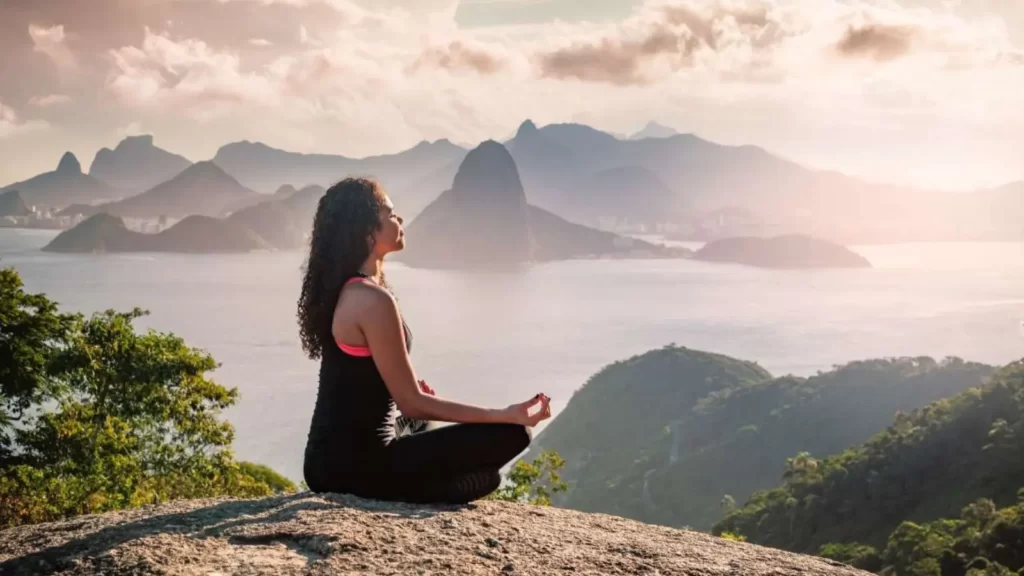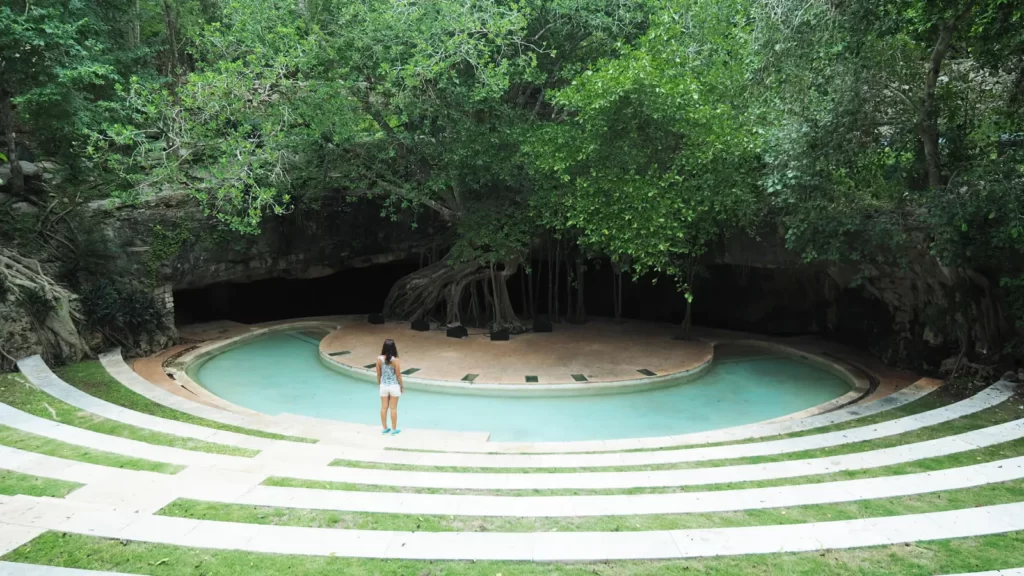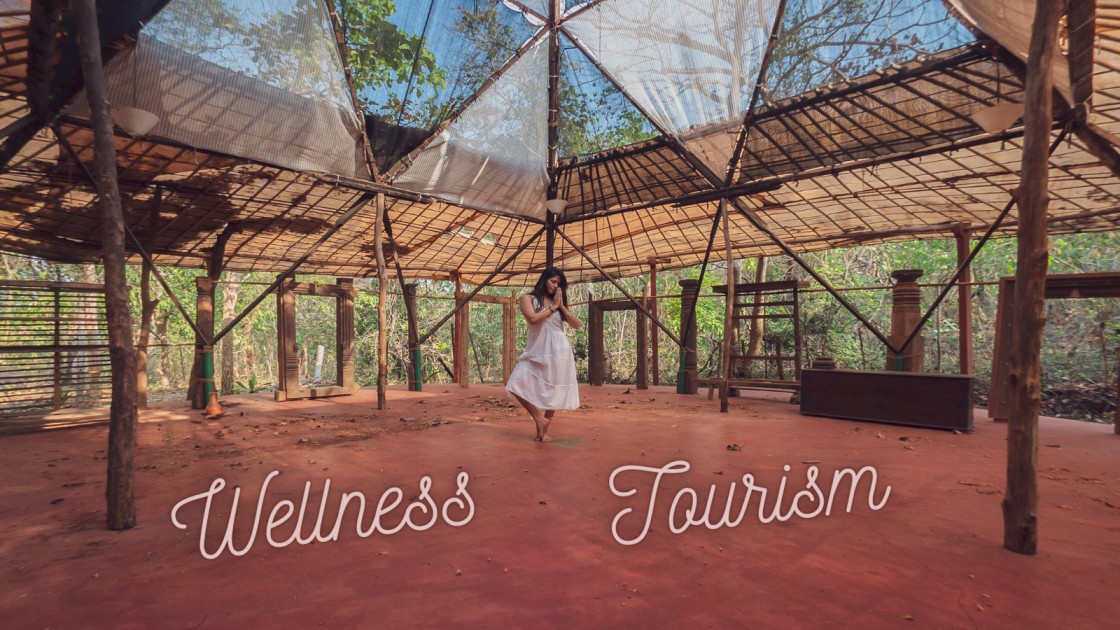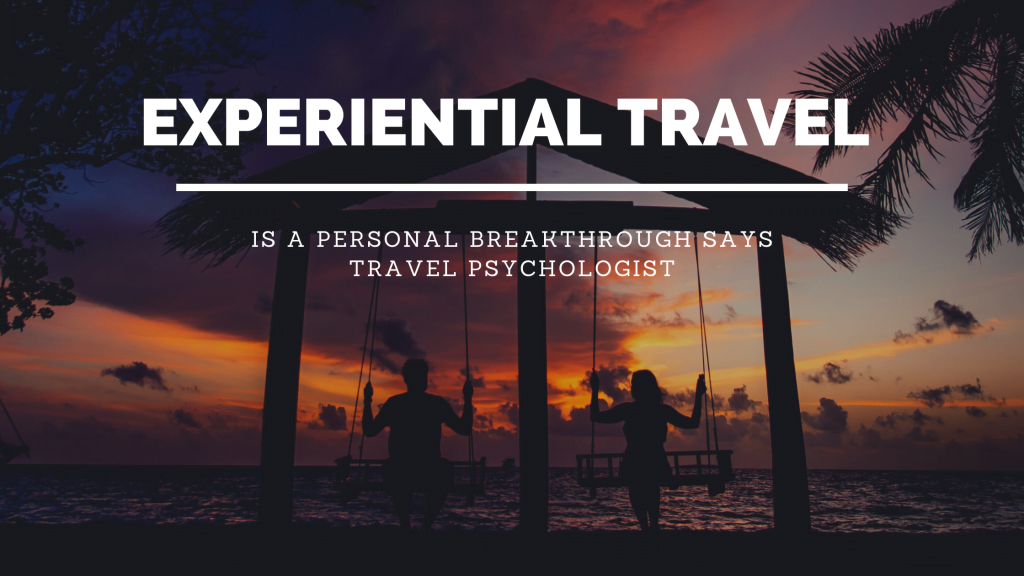People often use travel as a means to relax. While that is a good way to unwind and escape the stresses of everyday life, it does not necessarily have a positive impact on mental health. In the pursuit of holistic well-being, mental health stands tall as a crucial pillar. Addressing it while exploring the world has sparked a growing trend known as wellness tourism.
But what exactly is wellness tourism, and how does travel psychology play a pivotal role in enhancing this experience?

What is Wellness Tourism?
Wellness tourism is a form of travel that is motivated by the desire to improve your health or improve your state of mind. It is similar to other forms of ecotourism in that the focus is on environmental conservation and cultural appreciation. However, it has a specific focus on helping people improve their mental health and well-being (which makes it different from regular ecotourism).
In recent times, there has been an increase in the popularity of wellness tourism. Many people view it as a valuable way to improve their health by taking advantage of the relaxation techniques offered by resorts and other vacation hotspots. While this approach has some value, it usually is not enough to improve a person’s long-term mental health.
To truly improve someone’s mental health, they need to address the underlying factors that are causing them distress.

Understanding the Essence of Wellness Tourism
Enter wellness tourism, a unique form of travel that transcends traditional leisure, focusing on enhancing mental health and overall well-being. Unlike conventional vacations, wellness tourism isn’t just about relaxation; it’s a purposeful journey aimed at improving mental health and fostering self-improvement.
Wellness tourism is the practice of travelling for the purpose of improving physical, emotional and spiritual wellbeing. If you’re looking for an enriching experience, rather than just a quick getaway, then this form of travel psychology could be the perfect option for you! It’s a chance to gain insight into yourself while engaging in activities such as music, dance, yoga, meditation, or therapeutic spa treatments.
With wellness tourism, you can discover new parts of yourself and the world around you – all while taking care of your mental and physical health. So why not give it a try? You may just find the answers you’ve been searching for.

The Deeper Meaning of Wellness Tourism
This transformative travel isn’t solely about scenic destinations or lavish resorts. It’s a deliberate step towards understanding oneself better, fostering self-awareness, and identifying stress triggers. Recognizing the underlying factors affecting mental health and embracing mindfulness in everyday life becomes pivotal in this journey.
- Travel psychology can provide insight into how travel experiences affect our mental health.
- It can identify the mental health benefits of different types of travel, such as wellness tourism.
- Wellness tourism involves travelling to maintain or enhance mental and physical well-being.
- Psychology can help identify what can make travel more enjoyable and meaningful, such as setting achievable goals and being open to new experiences.
- It can also help us understand ourselves better and appreciate the beauty of new places and cultures around the world.
- By studying travel psychology, we can better understand the psychological benefits of travelling and make the most of our trips.

Why Choose Wellness Tourism with Travel Psychology?
Wellness tourism, accompanied by travel psychology, isn’t merely about destinations; it’s a transformative journey. It’s about uncovering the layers of self, unraveling stress triggers, and nurturing mental well-being amidst awe-inspiring landscapes.
Travel psychology explores how travel experiences benefit human health and well-being. It’s gaining popularity among wellness travelers seeking mental restoration and spiritual exploration through physical activities. Exploring new places and cultures, breaking away from routines—these are integral to this psychological travel experience.
Whether you travel solo, in groups, or engage in volunteer work, tapping into travel psychology empowers you toward better mental health.
It delves into the psychological impact of immersing in new environments and how interactions among traveler’s shape experiences. This field studies the mental shifts when stepping out of comfort zones, offering insights into adaptation challenges and fostering a sense of belonging.
Understanding these psychological effects empowers us to design wellness tourism experiences that prioritize positive mental outcomes. It’s about crafting unique journeys considering travelers’ psychological well-being, resulting in trips that not only refresh the body but also nurture mental and emotional wellness.

The Silent Battle of Mental Health Issues
In today’s world, mental health issues are prevalent, yet the stigma surrounding them often leads to silence and lack of support. Many suffer in solitude, failing to seek the necessary help that could drastically improve their quality of life.
- Escape and Perspective: Travel allows us to break from daily stressors, offering both physical and emotional distance while reshaping our view of well-being.
- Mental and Physical Challenges: It pushes our boundaries, breaking routines, and immersing us in diverse cultures, enriching our understanding of the world.
- Travel Psychology Insights: It aids all travelers in self-reflection, highlighting areas for personal growth that can positively impact their future.
- Cultural Exposure and Growth: Exposure to new cultures fosters openness, acceptance, and self-awareness, fostering emotional development.
- Deeper Mental Benefits: Beyond leisure, travel exposes us to new thoughts, ideas, and emotions, offering profound mental benefits.
- Holistic Growth: Whether for leisure or work, travel broadens horizons, enhancing emotional growth and personal development.

Empowering Wellness Travel with Travel Psychology
Here’s where travel psychology services step in. Imagine accessing mental health professionals from the comfort of your travel journey. Through services like mandeha, travel psychologists offer round-the-clock support, bridging the gap for individuals seeking mental health assistance during their travels.
Traveling breaks everyday routines, offering a fresh perspective and a chance to reset, ultimately placing life in a clearer context. It holds a profound psychological impact, from navigating culture shock to embracing exploration, leading to lasting changes that extend beyond the vacation itself.
Exposure to new cultures during travel broadens worldviews, providing a hiatus from daily monotony and an opportunity to immerse in diverse customs and traditions. This exploration offers a revitalizing break from routine life, fostering a deeper appreciation for the world’s diversity and beauty.
Moreover, travel presents avenues for personal growth by pushing individuals beyond their comfort zones. Venturing into unfamiliar territories breaks the monotony of daily life, enabling self-reflection, emotional resilience, and the expansion of one’s horizons.

Ancient Wisdom Meets Modern Solutions
From seeking physical healing in ancient times to now prioritizing mental well-being through travel, our understanding of holistic health has evolved. The 21st century heralds a new era where the mind finds solace and healing in the realms of travel.
1. Engage in Activities for Self-Connection
Participate in activities tailored by travel psychologists that foster self-awareness. Travel psychology encourages acceptance of life’s uncertainties, promoting activities like mindfulness, enhancements, and journaling. These not only bring calmness to your travels but also deepen your connection with yourself and your environment, anchoring you in the present moment.
2. Seek Meaningful Experiences for Personal Growth
Prioritize positive and meaningful experiences to nurture personal growth and self-awareness. Venturing into diverse cultures, forging new connections, and stepping out of comfort zones facilitate a broader worldview, fostering individual growth. Immersing yourself in a place becomes a catalyst for self-discovery, fostering positive development.
3. Reflect and Appreciate Your Journey
Pause to reflect on your travel journey, cherishing the moments of joy encountered along the way. Travel significantly impacts well-being, and taking time to genuinely appreciate these joyful moments grants enduring satisfaction. Remember, it’s not solely about the destination but also the transformative journey itself. Take pride in your efforts and the strides made during the voyage.

The Path Ahead: Embrace Wellness Tourism
In conclusion, with the right amount of research, planning, and support, wellness travel with support of travel psychology can have a hugely positive impact on your wellbeing. Not only will it help you to relax and unwind, but it can also give you the chance to explore new cultures and gain a deeper understanding of yourself.








Exceptional insight, didn’t realize this till I had conversation with mitesh.
Great work.
Glad you felt that. thanks.
Wow… never thought wellness tourism in our world, our environment means so much to human core health. Thanks!